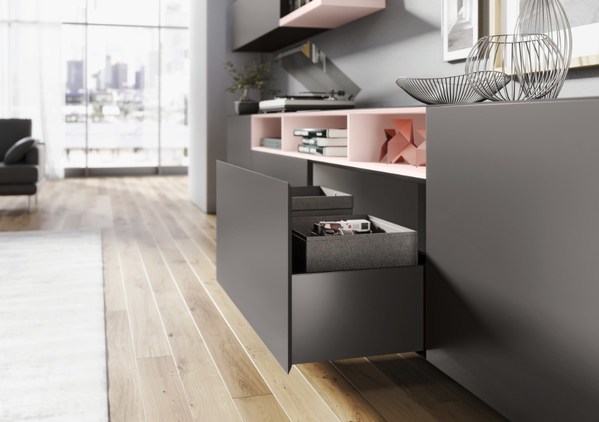KANSAS CITY — Manufacturers of at-home coffee products are using innovative formats and capitalizing on consumer trends like premiumization and customization to drive growth.
As a beneficiary of pandemic-era restrictions and the switch to remote work, the at-home coffee market underwent significant growth in the past few years. Data from the National Coffee Association found that at-home coffee consumption rates peaked relatively early, with 85% of past-day coffee drinkers brewing their beverages at home in January 2021, but levels continue to remain above pre-pandemic numbers. As of its September 2023 report, the association found 82% of past-day coffee drinkers had their beverage at home.
However, companies are now reporting mixed results for their at-home coffee units despite the persistent consumption rates. For instance, Bustelo and Folgers of the J.M. Smucker Co. saw 22% and 6% increases in net sales, respectively, during the first fiscal quarter ended July 31, and Nestle’s Nespresso business saw growth in its second fiscal quarter following a period of decline. Meanwhile, Keurig Dr Pepper’s (KDP) net sales for its US Coffee business decreased roughly 6% in the second quarter ended June 30 and the company’s US retail dollar consumption of K-Cup pods also fell 2.3% during the period. Robert J. Gamgort, chief executive officer for KDP, attributed the decline to greater consumer mobility and remained optimistic about the outlook for at-home coffee.
“We are definitely seeing a pullback of consumption of traditional coffee at home,” said Mel Elias, co-founder of single-serve coffee startup Bruvi. “Demand for entry level pods has come down, but consumers are replacing their traditional, or cheaper coffee pods, with more expensive coffee options.”
Bruvi is one of many companies that have identified a need for premium and specialty at-home offerings, with over 615 coffee products using premium claims entering the market since 2020, according to research from Mintel’s Global New Products Database. The startup focused specifically on the single-serve coffee market valued at $8 billion, Mr. Elias said, and developed advanced extraction technology to deliver coffee-house quality with the convenience of individual capsules. Bruvi’s brewing system produces seven varieties of coffee, including iced coffee, espresso and cold brew, and the company has partnered with 11 different brands to develop specialty roasts.
“Consumers are bypassing the coffee shop and making their own specialty coffee beverages at home, often replicating the cold coffee drinks seen on their social media feeds,” said Caleb Bryant, associate director of food and drink at Mintel. “Increased interest in premium at-home coffee experiences will drive retail coffee sales and offer both coffee brands and complementary coffee categories key growth opportunities.”
With customization becoming an increasingly important facet for at-home coffee drinkers, beverage startup Frazy has put personalization at the core of its coffee concentrates business model. The service allows consumers to choose between a variety of options to create their custom coffee, including flavor blends, sweetness levels, caffeine content and milk type (whole, oat, soy and non-fat milk or non-dairy creamer). Frazy’s concentrates come in 2.5-oz bottles with a separate packet of powdered milk, and the drink can be enjoyed straight out of the bottle or mixed with cold or hot water to create an 8-oz beverage.
“I think there’s a big space for customized beverages prepared fresh at home,” said Balaji Krishnan, founder of Frazy. “There’s room for innovation here, where you can actually bring users a one-click-away experience exactly the same, if not better, than you get from baristas.”
Mr. Krishnan further emphasized the importance consumers place on customization, which allows them to take their specific health needs into account, such as regulating sugar intake or avoiding potential allergens.
The coffee concentrate format itself also is gaining traction. Restaurant Brands International, Inc. subsidiary Tim Hortons launched a cold-brew coffee concentrate in August, marking the brand’s first nationally available retail product in the United States, and Smucker’s chief executive officer, Mark T. Smucker, told participants at a Sept. 7 conference that the company was eyeing the liquid concentrate trend.
“And since consumers continue to customize and try to recreate maybe their favorite coffee shop beverages at home, those multi-serve bottles, which have … 20 servings in it has — we believe there’s a significant opportunity there to capture that consumer as they continue to create those ‘cold coffee cocktails at home,’” he said.
 Pages you might like
Pages you might like








 Latest information
Latest information
 Follow official account
Follow official account
 Online support
Online support
 鄂ICP备2022017323号
鄂ICP备2022017323号
 鄂公网安备 42018502006493
鄂公网安备 42018502006493
 Launch Exhibition
Launch Exhibition
 Release information
Release information



 Today's topic
Today's topic
















